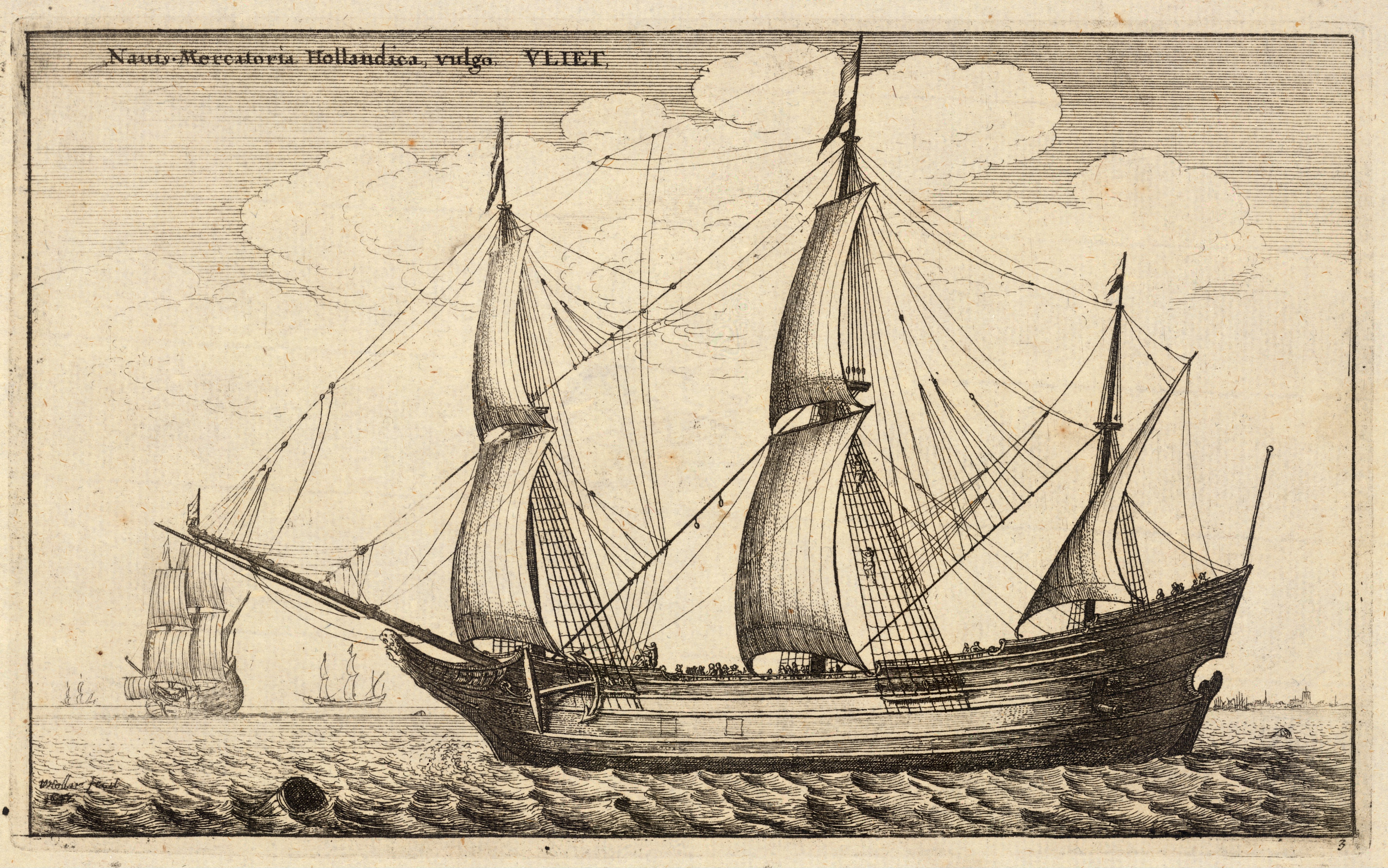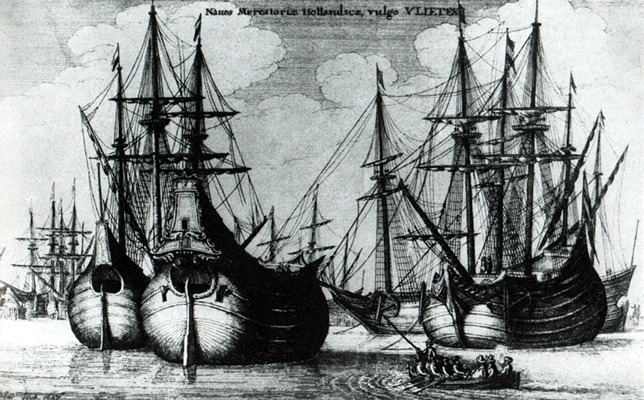
Wencelas Hollar - A Fluyt 1677

Wenceslaus Hollar, Flueten 1647
A Dutch 'fluyt' (flute), was designed to provide maximum space for cargo and passengers and a smaller crew. These ships could carry twice the cargo of the ships commonly used at the time, and gave the Dutch a tremendous trading advantage. They usually had only a few cannon, and a crew no greater than 20 people.
These ships typically weighed 200–300 tons and were approximately 65-80 feet (24 metres) in length and was somewhat similar to the Spanish galleon, but some were larger.
The standard fluyt design minimized or completely eliminated its armaments to maximize available cargo space, and used block and tackle extensively to facilitate ship operations. Another advantage of its pear-shape (when viewed from the fore or aft) was a shallow draft which allowed the vessel to bring cargo in and out of ports and up and down rivers which other vessels could not reach.

